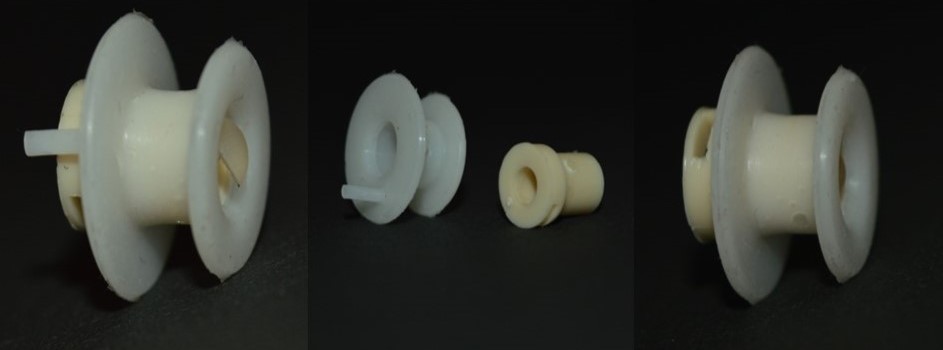This invention pertains to an improved voice-prosthetic device for laryngectomees, featuring a design aimed at enhancing functionality and addressing common issues such as candida formation, device dislocation, and cumbersome cleaning procedures. The innovation involves a specialized valve mechanism and supportive structure, offering more efficient speech production, reduced risk of food and liquid leakage into the trachea, and easier maintenance, improving the quality of life for individuals who have undergone laryngectomy.
India faces a serious problem, with 86% of the world's oral cancer cases, and 6% of these affecting the larynx. For many patients, this means losing their vocal cords and needing costly laryngectomy surgery. There's a need for a simple and affordable device to help them speak again. This new device should be easy to use, lasts longer, and doesn't require frequent doctor visits, making life easier for patients.
- Convenient and Cost-Effective: The device is affordable, has an increased lifespan, and can be easily cleaned and disinfected by the patient at home.
- Comprehensive Tool Set: The invention includes specialized insertion, removal, and combined insertion-removal tools, all crafted from biocompatible stainless steel, for precise handling and placement of the device.
- Adjustable Valve Seat: The valve seat at the esophagus side of the inner cylinder is inclined at specific angles (preferably 5-20°), ensuring optimal function and sealing of the flap valve.
- Innovative Dual-Cylinder Design with Integrated Flap Valve: The device features a hollow inner cylinder that moves within an outer cylinder for secure placement, and a unique circular flap valve that controls air passage.
- Durable and Visible Materials: Made from flexible, medical-grade polymers, the device includes radiopaque properties for easy visibility and monitoring under imaging techniques.
The prototype converts exhaled air into comprehensible speech, achieving an accuracy rate exceeding 90% across various vocalizations. The device includes a user-friendly tool for easy removal and insertion, simplifying cleaning and reducing the need for hospital visits for patients. The prototype has completed initial validation trials.
The developed prototype has undergone preclinical testing, showing performance similar to existing market devices. It passed tests for gravity, water flow, and X-ray visibility. The device is now prepared for production using suitable materials and processes. It aims to be affordable, especially for those from lower socio-economic backgrounds, once commercialized.
5
This innovation enhances the quality of life by enabling clearer, more natural speech for individuals who have undergone a laryngectomy. It provides a reliable, biocompatible solution for voice restoration, improving patient outcomes.
Medical Devices, Otolaryngology Equipment, Prosthetic and Orthotic Devices, Biotechnology, Healthcare
- Medical Rehabilitation: Enhances communication abilities for the patients who have undergone laryngectomy, contributing to their speech rehabilitation
- Healthcare Devices: Contributes to the development of advanced medical devices for improving post-laryngectomy care
Geography of IP
Type of IP
201721044635
523077

